Vayechi, brings us to the close of Bereshit, the close of the saga of the Abrahamic family. As with Chaye Sarah, the mention of the life of Sarah, and now the life of Ya’akov, the word life is notice of imminent death.
Even as these days are lengthening, minute by minute, we sense the renewal of the earth from the darkness of winter. Pink buds emerge, promise of springtime calls out as eagle dons his high-top perch awaiting the thrum of herring swimming up the Gorge. We await signals of returning life with great anticipation. We pray for renewal, for life.
I am honoured to be included twice yearly in a rota of religious leaders in Victoria, to write a column in the Spiritually Speaking series for the Times Colonist newspaper. I thought I would include it today, as a number of people have asked me about prayer: How, when, why? It is titled, “Yes, Virginia.”
Virginia Woolf famously noted, “… a woman must have money and a room of her own if she is to write fiction.” May I suggest we elaborate upon Woolf’s premise. Today, too many barely have a corner, never mind a room of their own. Where is their room, their wealth to be found?
I am that most fortunate of women. I do have a room. As I work daily in my study, my eyes are reassured by family photos and books, paintings and memories. My books are my breath, my endurance, my inspiration.
A drying etrog, a citron from Sukkot, sits on my desk on top of a lectern a father built for one of my Bar Mitzvah students years ago. To my left is a stand with a study volume always open to the Torah reading of the week. I am surrounded by the presence of family and friends – and this room gives me space to think, to write, to speak.
I am very aware of what riches, what blessing it is to have such a room. One evening a few months ago, Aaron hosted a small party after a conference. The rooms filled with conversation and laughter. I happened to walk down the hallway and noticed one of our guests sitting quietly in one of the armchairs. I asked if I could join him, and was deeply pleased as he quietly voiced his understanding of my room. We sat together, warmed by volumes, and tchotckes, the presence of work, and the layers of inner story that every corner spoke to.
But we each also have other room in which to dwell; not a study, per se, but our inner rooms, where we welcome thoughtfulness, contemplation, and prayer. We often think of prayer as an individual communion with God, expressing our gratitude, pleas, and hope. Some of us also have the blessing of prayer and song in companionship with others.
Prayer also happens in many unexpected corners of our lives. I spoke with a woman recently who helped bury an infant whilst on her knees in muddy earth, cupping dirt over that tiny coffin. Hers was an act of profound prayer; her soul and the soul of the baby now one. Another family introduced me to their long-awaited son, their prayers for his safe arrival held in months of prayerful lying on that same earth. One man asked where he could find gently used tefillin (phylacteries) and I said, here, they were just given to me by a son, after his father died.
Moments of awakening, a turn-of phrase that becomes a precious memory, are prayers of love, are tendrils of connection, wrapping us all in that garden we call our community. In so many ways prayer balances on that invisible beam of light, traversing life and death, love, grief and hope. Rooms of prayer belong to each of us in these unexpected moments. Whether prayer is public or private, one form does not preclude the other, both are doorways into love. These moments are indeed our wealth and a room of our own.
And so, I realize my haven is not just my study, not even in the wisdom found between those beloved paper leaves, as they too age and decay. One book I just finished reading, a paperback from too long ago, now needs rubber bands to bind it intact. Prayer is our inner room; our wealth bound by that simple rubber band. Prayer is found in each room throughout our lifetime. And in this room we call our body, we know God too prays for us.
With love,
Rabbi Lynn


Va’eria
January 13, 2026 by Rabbi Lynn Greenhough • From the Rabbi's Desk
This past week we began the Book of Shemot, the book of Names, most commonly known as Exodus. I’m sharing my d’var from Kabbalat Shabbat:
Shemot holds theological audacity and is theologically riveting; Shemot is, I think, a form of erusin, God’s betrothal and love letter to Israel.
Tonight, I want to speak about love. About hope. I read this short story this morning:
“My stepdad, Greg, never said ‘I love you.’ He was a hard man. Worked construction. Came home, ate, slept. He paid for my college. He paid for my car. But he never hugged me. I always thought he resented me. I wasn’t his real son. Greg died of a heart attack last week. I was cleaning out his truck. In the glove box, I found a worn-out notebook. It was a diary.More